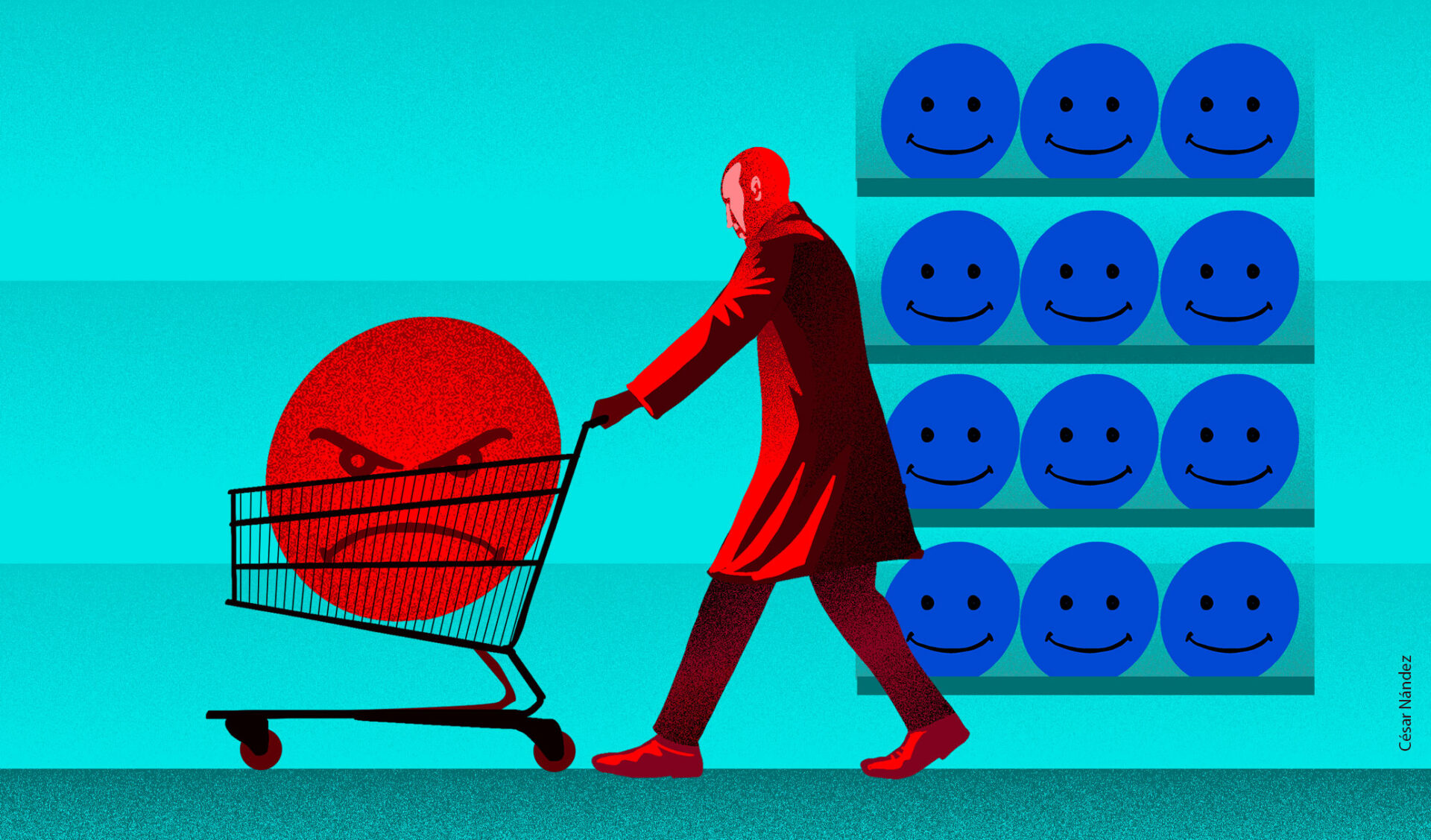Na semana em que Mauricio Macri, ex-presidente da Argentina, assumiu o poder, a facção mais intransigente do partido cessante, o kirchnerismo, circulou um “manual de micromilitância K” para instruir seus acólitos sobre como resistir ao governo entrante. Das várias técnicas de resistência ali descritas, sobressaiam as que usavam o consumo e a eleição privada em âmbitos de natureza habitualmente neutros, como o mercado, para minar a legitimidade e os recursos governistas e seus apoiadores. Entre as iniciativas listadas figuravam intervir com desenhos e frases ou rasgar os jornais que normalmente eram encontrados nos bares de Buenos Aires, realizar actings ou simulações de protestos ou performances teatrais de conscientização em supermercados, boicotar empresas de donos apoiadores do novo governo ou – ao contrário – comprar produtos alinhados ao kirchnerismo, como o jornal Página12.
A arena privada e de consumo que o próprio kirchnerismo e seus aliados de esquerda associavam não só à apatia, mas também à alienação da paixão pelo interesse público e pela política, foi subitamente projetada como uma nova e entusiasmada trincheira.
Essa inesperada extensão do conflito partidário ao mundo dos bens de consumo, produtos e serviços não é privilégio dos populismos de centro-esquerda. A extrema direita brasileira, por exemplo, não perdeu a oportunidade e mobilizou simpatizantes e militantes para beneficiar empresas cujos proprietários apoiavam publicamente o bolsonarismo. A ordem do dia era comer hambúrgueres nos restaurantes da rede Madero ou camarão nos do Coco Bambu, comprar roupas e tecidos nas lojas Havan, decorar a casa com móveis Sierra Moveis e passear no shopping Barra World, no Rio. De fato, os donos dessas empresas excederam a expressão de simpatias individuais a ponto de chegarem a ser investigados pela Polícia Federal por conspirar e apoiar uma tentativa de golpe de Estado cujo beneficiário seria o ex-presidente, hoje impedido de concorrer ao cargo, Jair Bolsonaro.
Da rua da frente, lulistas e simpatizantes de opções progressistas evitavam ritmos musicais considerados bolsonaristas, como sertanejo e pagode, associados a grupos de direita, como o agronegócio, o sindicato de caminhoneiros e milícias controladoras de favelas fortemente infiltradas por forças policiais e de segurança. Os direitistas fizeram o mesmo, por exemplo, com artistas de teatro e músicos que defendiam posturas democráticas contrárias ao autoritarismo promovido pelo Estado no interregno 2018-2022. Essa politização de âmbitos privados afetou até mesmo certas marcas de chocolates propagandeadas por influenciers críticos de Bolsonaro, como Felipe Neto.
Estudos posteriores à campanha eleitoral de 2022 sobre as distintas expressões da polarização afetiva que dividiu os brasileiros revelam que ao menos 20% dos cidadãos (um em cada cinco) não estavam dispostos a comprar produtos ou marcas que favorecessem um candidato contrário aos seus desejos. Os cientistas políticos Felipe Nunes e Thomas Trauman rotulam essa invasão da mesa, armário e lar dos brasileiros por critérios partidários de “calcificação” da polarização política, uma expressão inegável de que os antagonismos partidários saltaram ao nível dos sentimentos e do cotidiano. Na literatura da ciência política, faz tempo que esse fenômeno é conhecido como “consumo político”, uma prática executada há décadas até mesmo na América Latina. Vale recordar os protestos nos portões dos bancos argentinos no período posterior ao corralito de 2001-2002, os discursos contra o abastecimento de gasolina nos postos Shell e Esso pelo ex-presidente Kirchner em meados dos anos 2000, o exercício do poder individual em supermercados para denunciar aumentos inflacionários de preços além dos acordos por parte daqueles do governo central brasileiro que foram chamados de fiscais de Sarney (pelo ex-presidente na segunda metade da década de 1980), ou as campanhas na internet e nas portas das lojas Zara no Brasil no início da década de 2010 pelo uso de trabalho escravo.
Essa proporção de politização das esferas do cotidiano por um quinto da população está alinhado com o que pesquisas anteriores no Brasil e em outros países da região revelam sobre as faces do chamado “consumo político”, ou seja, o uso do poder de compra do consumidor para perseguir objetivos políticos ou éticos. Essa prática objetiva cidadanizar ou politizar as relações com empresas e organizações, com a intenção de influenciá-las a seguir valores e defender políticas favoráveis ao modelo de sociedade desejado.
Pesquisas realizadas pela consultora Market Analysis revelam que, já no início do século XXI, um número significativo de brasileiros premiava empresas ou marcas por seu comportamento social, ambiental ou ético. Em 2000, eram 26%. Esse percentual diminuiu durante o auge econômico do país sob o governo do PT para entre 12% e 22%. E à medida que o país foi se polarizando partidariamente, mas também sua economia foi piorando, essa ferramenta de participação política por outros meios voltou a disparar, chegando a 29% antes da pandemia. No início de 2024, a porcentagem chegou a pouco mais de 32%, ou seja: um em cada três brasileiros recompensou (nos doze meses anteriores) uma empresa ou marca por suas posturas políticas ou socioambientais.
Essas formas de premiar incluem comprar produtos, falar bem de marcas e empresas e recomendá-las a terceiros. Mas o consumo político também passa por castigar esses agentes quando mantêm condutas percebidas como indesejáveis. Esse boicote adota diferentes formas: deixar de comprar, falar mal de marcas, associá-las a eventos negativos e inclusive disseminar informação – independentemente de serem confiáveis ou não – para prejudicar sua reputação e imagem pública. Os brasileiros começaram o século com 19% dos cidadãos abraçando essas ações. Esse percentual caiu nos anos seguintes, mas – tal como ocorreu com o consumo político de premiação – a crise econômica e a polarização afetiva provocaram seu crescimento, recuperando o terreno perdido. Em 2019, quase 24% reconheceram ter boicotado uma empresa. Um ano depois, essa porcentagem era menor: quase 19%, o que ainda era o dobro da porcentagem média dos anos anteriores. No início de 2024, 22% puniram uma empresa ou marca (nos doze meses anteriores) em função de seus valores, ações ou omissões com repercussões consideradas negativas para a sociedade, na ética pública ou no meio ambiente.
Na Argentina, após a brutal crise de 2001, 43% dos adultos em áreas urbanas boicotaram marcas, produtos ou empresas, embora dez anos depois – passado o auge da frustração contra práticas prejudiciais ao interesse público e sem mobilização da cúpula do poder contra qualquer organização em particular – esse percentual tenha diminuído para 10%. Os mexicanos também começaram o novo século dispostos a respingar suas relações de mercado e cotidiano com a política: 28% exerciam o consumo político punitivo em 2001. Quase dez anos depois, essa porcentagem diminuiu um pouco para 21%.
As fronteiras entre o que é politizável e o que permanece neutro aos antagonismos partidários foram borrados ou são cada vez mais tênues. E isso não deveria surpreender em momentos em que a polarização contamina as relações familiares, separa amizades e condiciona vínculos amorosos ou íntimos. Se as simpatias ou antipatias partidárias regulam os afetos e endurecem visões de mundo, os modelos de sociedade e os prognósticos sobre o futuro de modo tão opostas, não é surpresa que cada aspecto da vida se torne uma trincheira. É assim que a polarização afetiva molda nosso cotidiano e – naturalmente – nossa comida, sala de estar, vestuário e entretenimento.











